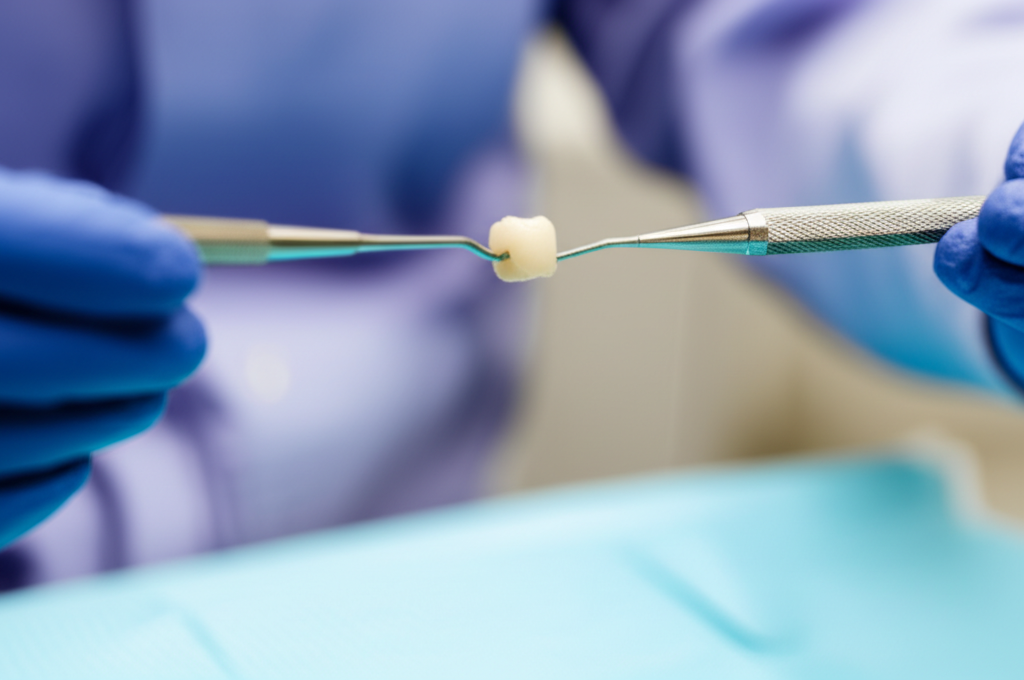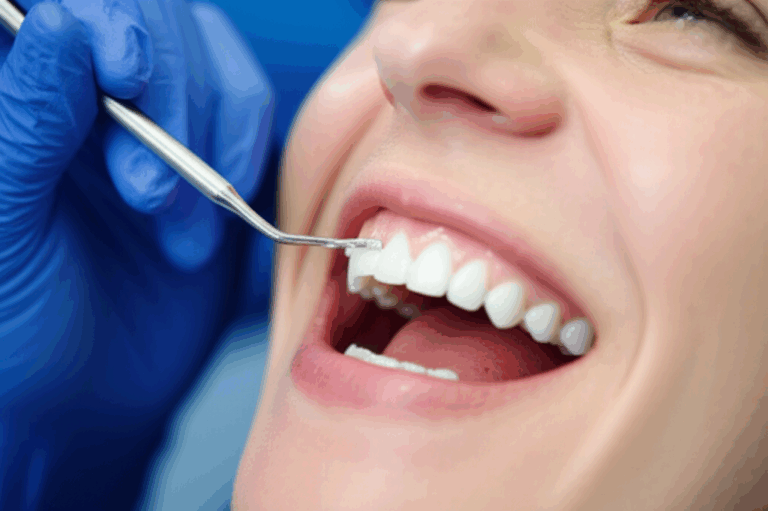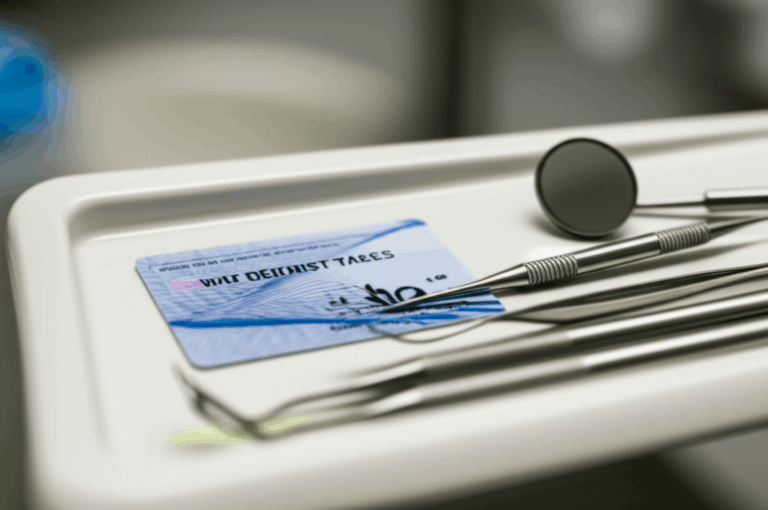
Dental Crown Failure: When Should Your Dentist Replace a Crown for Free?
Have you just felt your dental crown crack? Or maybe you looked in the mirror this morning and saw your crown has come loose, even though you’ve tried to take good care of your teeth. It’s annoying. It’s stressful. And honestly—you’re probably worried if you’ll have to pay a lot all over again.
Wondering if your dentist should replace your dental crown for free is very normal. A lot of people think about this after their crown breaks earlier than they thought it would. Do you have any rights? Are you protected? Does your dentist have to pay for a bad crown? Here’s what you need to know—in everyday words.
In This Article
- What Is a Dental Crown and Why Might It Fail?
- The Real Lifespan of Crowns: Expectations vs. Reality
- What Do Dental Warranties and Guarantees Cover?
- When Dentists Typically Replace a Crown for Free
- When You Might Be Responsible for Replacement Costs
- What to Do If Your Crown Fails: Step-by-Step Guide
- Tips to Make Your Next Crown Last Longer
- Key Takeaways and Your Next Steps
What Is a Dental Crown and Why Might It Fail?
Let’s start basic. A dental crown is a tooth-shaped cap your dentist puts over a tooth. It brings back the tooth’s shape, strength, and look—protecting a tooth that’s cracked, worn down, or has had a big filling or a root canal.
Think of it like a helmet for your tooth: it’s meant to be strong and last a while. But sometimes, just like a dropped bike helmet, a crown chips, falls off, or breaks much sooner than you’d hope.
Common reasons a dental crown can fail:
- Bad fit or wrong placement: If your dentist didn’t fit the crown just right, stuff can sneak under it, making your tooth rot or the crown get wobbly.
- Weak or cheap materials: Porcelain can break, metal can bend, and even the stronger ceramics can wear down—especially if you grind your teeth at night.
- Problems with how you bite or clean your teeth: Constant grinding, chewing on ice, or not brushing and flossing can all ruin a crown.
- Problems with the tooth under the crown: If a cavity forms under the crown or your tooth cracks, even a good crown won’t work.
- Accidents or injuries: Biting down on something hard, getting hit in the mouth, or opening things with your teeth (don’t do it!) can mess up a crown.
In short: Sometimes a crown fails because the dentist or lab messed up, and sometimes it’s just life.
The Real Lifespan of Crowns: Expectations vs. Reality
So, how long should a crown last? Is it forever? Not really.
Most dentists say:
- Gold crowns: 15–30+ years. These last the longest.
- Porcelain fused to metal crowns: 10–15 years. Strong and don’t look bad.
- All-ceramic crowns (like zirconia or E-max): 5–15 years. Zirconia is tough, and E-max looks more real.
- On average: About 8 to 9 out of 10 crowns make it to 10 years.
Still, stuff happens. Sometimes a crown breaks after a year or two; other times, it hangs on for 20 years.
Lifespan depends on:
- How well your dentist did the job: Small mistakes can cause problems later.
- What the crown is made of: Lower-cost materials don’t last as long.
- How you care for your teeth: Smoking, skipping floss, or grinding teeth shortens crown life.
- Just plain luck: Sometimes things go wrong even with good care.
What Do Dental Warranties and Guarantees Cover?
Let’s get straight to your main worry: Should your dentist redo your crown for free if it breaks? The answer mostly depends on what kind of guarantee or promise your dentist gave you.
The Truth About Dental Warranties
Most dental offices have some kind of guarantee for big dental work. But here’s the trick: there’s no rule for everyone. Some dentists give a one-year guarantee. Others will promise 2, 3, 4, or even 5 years. Some only cover problems with the material or workmanship, not problems because of accidents or patient habits.
Warranties often DO cover:
- Crown breaking due to a flaw in the lab
- Bad fit, if found early
- Failure because the crown didn’t stick well
But they usually DO NOT cover:
- Busted crown from an accident (like falling on your face)
- New cavities under the crown
- Problems caused by not taking care of your teeth (like skipping checkups or not brushing)
- Damage from teeth grinding, unless you wear the night guard your dentist told you to use
Read the Fine Print
Before you get a crown, ask your dentist these questions:
- Do you have a written warranty?
- How long does it last?
- What is covered, and what is not?
- Can it be used if I move to a new dentist?
If you don’t have the papers, call the office and ask. You deserve to know.
When Dentists Typically Replace a Crown for Free
Now let’s get to the point. When will your dentist pay for a new crown?
1. Dentist or Lab Mistake (During Warranty)
If your crown broke because the dentist or lab messed up, most dentists will fix it for free—at least while the warranty lasts.
Some examples:
- The crown keeps falling off soon after getting it
- You have a lot of pain, and it turns out the crown doesn’t fit right
- The lab made it the wrong way, and it cracks early
Sometimes, it’s a lab problem. Other times, it’s because the dentist didn’t cement or prepare the tooth right.
2. Material Problem
If the crown itself is just bad—like, the porcelain cracks while you’re eating normal food, or the metal warps—the dentist will usually call the lab to get a new one made, and you shouldn’t have to pay again.
3. Goodwill and Reputation
Most dentists want their patients happy. Even for “iffy” problems, they’ll often redo a crown free or for a big discount just to make it right.
Being Nice Helps
If you always showed up for checkups and took care of your teeth, but your crown still failed fast, most dentists will try to help you out.
When You Might Be Responsible for Replacement Costs
Sorry, but not every failed crown means a free redo. Here’s when you probably have to pay:
1. Warranty Expired
If your crown is outside the guarantee period, you’ll probably have to pay for a new one, no matter the reason.
2. Damage You Caused
- Biting on pens, ice cubes, or hard stuff
- Grinding/clenching your teeth and not wearing the night guard your dentist gave you
- Skipping dentist visits or not cleaning your teeth
A lot of dentists’ warranties don’t cover these things.
3. New Problems
If you get a new cavity under your crown or your root fails months or years after getting the crown, it’s not your dentist’s fault.
4. Health or Bite Changes
Sometimes your bite changes because of health problems or braces. That’s out of your dentist’s hands.
5. You Want a Different Crown Type
If you want to switch to a fancy new material because you just like how it looks, you’ll need to pay the difference.
What to Do If Your Crown Fails: Step-by-Step Guide
If your crown is loose, chipped, or just feels weird, what should you do?
1. Call Your Dentist Right Away
Don’t try home fixes (really, no super glue). Call your dentist, explain what happened, and ask for a quick appointment.
2. Gather Your Papers
Look for any receipts, treatment outlines, and—most important—your warranty info.
3. Talk Honestly With Your Dentist
Tell your dentist when you got the crown, how you care for your teeth, and exactly what happened. This helps them know if it’s a material, dentist, or care problem.
4. Ask About Costs
Ask if the replacement is free. If not, inquire why, and get a written estimate. If you think it’s due to a mistake or a bad lab product, kindly ask if they can fix it for free or less money.
5. Think About a Second Opinion
If you don’t feel right about what you’re told, visit another dentist. Sometimes they’ll see something your first dentist missed.
6. Know Your Rights
If you think the work was not done right and your dentist doesn’t want to help, you can:
- File a complaint with your state dental board
- Contact the ADA (American Dental Association) for advice
But most problems can be fixed just by talking honestly with your dentist.
Tips to Make Your Next Crown Last Longer
Think of your dental crown like your car. Take care of it, and it’ll work well for years. Ignore it, and… well, you know.
- Brush and floss daily: Bad stuff loves to hide at the edges of crowns. Don’t let it.
- Get regular checkups: At least twice a year. Your dentist will spot tiny problems early.
- Wear a night guard if you grind your teeth: This protects both crowns and your own teeth.
- Don’t chew hard or sticky stuff: This means no ice, jawbreakers, or biting your nails.
- Ask about materials: Next time, talk with your dentist about what type of crown makes sense for you. Working with a digital dental lab can help get a crown that fits better.
If you’re thinking about different crown types, ask your dentist about things like a zirconia or ceramics crown, and how labs can make them last longer and look better.
Key Takeaways and Your Next Steps
Let’s sum it up.
When will your dentist replace your crown for free?
- If the failure is because of a dentist or lab error—especially within the guaranteed time—most dentists will redo it free or for a much lower cost.
- If a problem is because you didn’t care for your crown, or it was an accident, you’ll probably need to pay.
- Always ask about any guarantees before your crown work, and keep all the paperwork.
If you have a crown problem:
- Contact your dentist right away (don’t wait).
- Talk things out, nicely.
- Check your warranty and insurance options.
- Stand up for yourself if you need to, but listen to your dentist too.
- Get a second opinion if you’re still not sure.
Remember: your dentist wants you happy and healthy. If crowns keep failing, you might want to check in with a second opinion from a new dentist.
And don’t wait or worry too long—a quick fix now is usually way easier (and less expensive) than waiting.
Bonus: Frequently Asked Crown Questions
Q: How much is a new crown if it’s not free?
A: In the US, a new crown is usually $800 to $2,500, depending on what it’s made of and how hard the fix is. Dental insurance might pay a part, especially if several years have gone by.
Q: Can I switch to another type of crown (like zirconia) if I need a new one?
A: Usually yes—but you’ll need to pay the extra cost.
Q: What should I do if I’m in a lot of pain with my crown?
A: Call your dentist right away. Pain can mean there’s something wrong, like an infection or crack—don’t put it off.
Q: Can I get help from a dental lab directly?
A: Dental labs, like a china dental lab, make crowns for dentists—not patients directly. Always go through your dentist.
The Empowered Patient: Your Oral Health, Your Choice
Problems with your crown may feel like a headache, but with a little know-how and speaking up, you’ll get through it. Ask questions. Expect clear answers. Build a good connection with your dentist so you feel confident and in control.
A healthy smile is always worth it—and so are you.
Medically reviewed for accuracy
If you keep having dental crown questions, worries about warranties, or just want to talk about oral health care, set up a chat with your dentist. Keep asking, keep learning, and keep smiling!
Related Reading:
- Learn more about dental-implant restoration options.
- Wondering about smile improvements? See if a veneer is right for you.
- For more about tech in crown making, check out digital dental lab innovations.








